Centralised finance platform that powers your business growth.
Centralised finance platform that powers your business growth.
Centralised finance platform that powers your business growth.
Easily manage finance operations, local and cross-border payments and business accounts, all on a single platform.
Easily manage finance operations, local and cross-border payments and business accounts, all on a single platform.
Easily manage finance operations, local and cross-border payments and business accounts, all on a single platform.




Centralised finance platform that powers your business growth.
Easily manage finance operations, local and cross-border payments and business accounts, all on a single platform.

Trusted by the next generation of businesses.
Grow without limits with our powerful application and capable APIs.
100%
100%
100%
100%
Visibility and control over finance operations
10+
10+
10+
10+
Supported currencies for business across borders
supported
currencies for cross border businesses
13+
13+
13+
13+
Countries to simplify your business payments
30+
30+
30+
30+
Local and global payment methods
The essentials you need to centralise the financial universe for your business.
A single dashboard for streamlined financial management across finance operations, business payments, and business accounts.


Finance Operations
Streamline your finance operations and free up your team’s time with our intuitive tools.


Finance Operations
Streamline your finance operations and free up your team’s time with our intuitive tools.


Finance Operations
Streamline your finance operations and free up your team’s time with our intuitive tools.


Finance Operations
Streamline your finance operations and free up your team’s time with our intuitive tools.


Business Payments
Harness the power of next-generation payments with Niobi’s enterprise-grade infrastructure.


Business Payments
Harness the power of next-generation payments with Niobi’s enterprise-grade infrastructure.


Business Payments
Harness the power of next-generation payments with Niobi’s enterprise-grade infrastructure.


Business Payments
Harness the power of next-generation payments with Niobi’s enterprise-grade infrastructure.


Business Accounts
Effortless management of multi-currency accounts, cash flows, and treasury with Niobi.


Business Accounts
Effortless management of multi-currency accounts, cash flows, and treasury with Niobi.


Business Accounts
Effortless management of multi-currency accounts, cash flows, and treasury with Niobi.


Business Accounts
Effortless management of multi-currency accounts, cash flows, and treasury with Niobi.
End-to-end finance ecosystem that powers your business growth.
End-to-end finance ecosystem that powers your business growth.
End-to-end finance ecosystem that powers your business growth.
End-to-end finance ecosystem that powers your business growth.
Fortified security for your finances.
Security is at our core. Niobi implements the best-in-class security controls and monitors them 24/7 to protect your financial data.



Safety of Funds
Regulated through licensed banking partners who are members of deposit insurance schemes
Safety of Funds
Regulated through licensed banking partners who are members of deposit insurance schemes
Safety of Funds
Regulated through licensed banking partners who are members of deposit insurance schemes
Safety of Funds
Regulated through licensed banking partners who are members of deposit insurance schemes
MFA
Multi-factor authentication to fortify the security of your financial data
MFA
Multi-factor authentication to fortify the security of your financial data
MFA
Multi-factor authentication to fortify the security of your financial data
MFA
Multi-factor authentication to fortify the security of your financial data
Fraud Prevention
Automated fraud monitoring through in-built tools and protocols
Fraud Prevention
Automated fraud monitoring through in-built tools and protocols
Fraud Prevention
Automated fraud monitoring through in-built tools and protocols
Fraud Prevention
Automated fraud monitoring through in-built tools and protocols
Encrypted Data
Robust encryption to safeguard and secure your data
Encrypted Data
Robust encryption to safeguard and secure your data
Encrypted Data
Robust encryption to safeguard and secure your data
Encrypted Data
Robust encryption to safeguard and secure your data


Our finance ecosystem drives success and is grounded in trust.
Here is what they say.
"I use Niobi to process payroll by uploading Excel sheets for bulk express payments. It’s great for paying bills directly and the reporting feature provides valuable data insights. Reconciling my bank statements with Niobi statements on my accounting platform has never been easier."
Edwin Maina - Director, Seargent Solutions
"We were looking for a solution that could be effortlessly integrated into our daily operations and could simplify how we tracked and monitored our finances. Niobi ticked all these boxes."
Kevin Macheru - Director, Prestigious Vineyard Academy
"As a business owner, Niobi has been a game-changer, streamlining cash flow management and helping me stay on top of finances with incredible support."
Marion - CEO, Car Hub Detailers
"Through Niobi, we now have the real-time visibility of our finances that we needed. We also easily collaborate with multiple users in our firm, to make finance management easy."
Cecilia Nyaga - Operations & Admin Executive, CJ & Shephard Advocates
"I can't praise Niobi enough for the incredible support it's provided to my business in streamlining our cashflow management. As a business owner, staying on top of finances is paramount, and this application has truly been a game-changer"
Marion, CEO of Car Hub Detailers
"As a business owner, Niobi has been a game-changer, streamlining cash flow management and helping me stay on top of finances with incredible support."
Marion, CEO of Car Hub Detailers
"As a business owner, Niobi has been a game-changer, streamlining cash flow management and helping me stay on top of finances with incredible support."
Marion, CEO of Car Hub Detailers
"We were looking for a solution that could be effortlessly integrated into our daily operations and could simplify how we tracked and monitored our finances. Niobi ticked all these boxes."
Kevin Macheru, Director Prestigious Vineyard Academy
"We were looking for a solution that could be effortlessly integrated into our daily operations and could simplify how we tracked and monitored our finances. Niobi ticked all these boxes."
Kevin Macheru, Director Prestigious Vineyard Academy
"We were looking for a solution that could be effortlessly integrated into our daily operations and could simplify how we tracked and monitored our finances. Niobi ticked all these boxes."
Kevin Macheru, Director Prestigious Vineyard Academy
"Through Niobi, we now have the real-time visibility of our finances that we needed. We also easily collaborate with multiple users in our firm, to make finance management easy."
Cecilia Nyaga, Operations & Admin Executive CJ & Shephard Advocates
"Through Niobi, we now have the real-time visibility of our finances that we needed. We also easily collaborate with multiple users in our firm, to make finance management easy."
Cecilia Nyaga, Operations & Admin Executive CJ & Shephard Advocates
"Through Niobi, we now have the real-time visibility of our finances that we needed. We also easily collaborate with multiple users in our firm, to make finance management easy."
Cecilia Nyaga, Operations & Admin Executive CJ & Shephard Advocates
"I've been using Niobi primarily to process payroll for my staff. Once my accountant generates an Excel sheet, I upload it to Niobi to make bulk express payments. I am also able to pay my bills directly from Niobi, and the reporting feature is excellent as it provides valuable data insights. Additionally, reconciling my bank statements with Niobi statements on my accounting platform is much easier."
Edwin Maina, Director, Seargent Solutions
"I use Niobi to process payroll by uploading Excel sheets for bulk express payments. It’s great for paying bills directly and the reporting feature provides valuable data insights. Reconciling my bank statements with Niobi statements on my accounting platform has never been easier."
Edwin Maina, Director, Seargent Solutions
"I use Niobi to process payroll by uploading Excel sheets for bulk express payments. It’s great for paying bills directly and the reporting feature provides valuable data insights. Reconciling my bank statements with Niobi statements on my accounting platform has never been easier."
Edwin Maina, Director Seargent Solutions

Centralise the financial universe for your business with Niobi.

Centralise the financial universe for your business with Niobi.

Centralise the financial universe for your business with Niobi.















